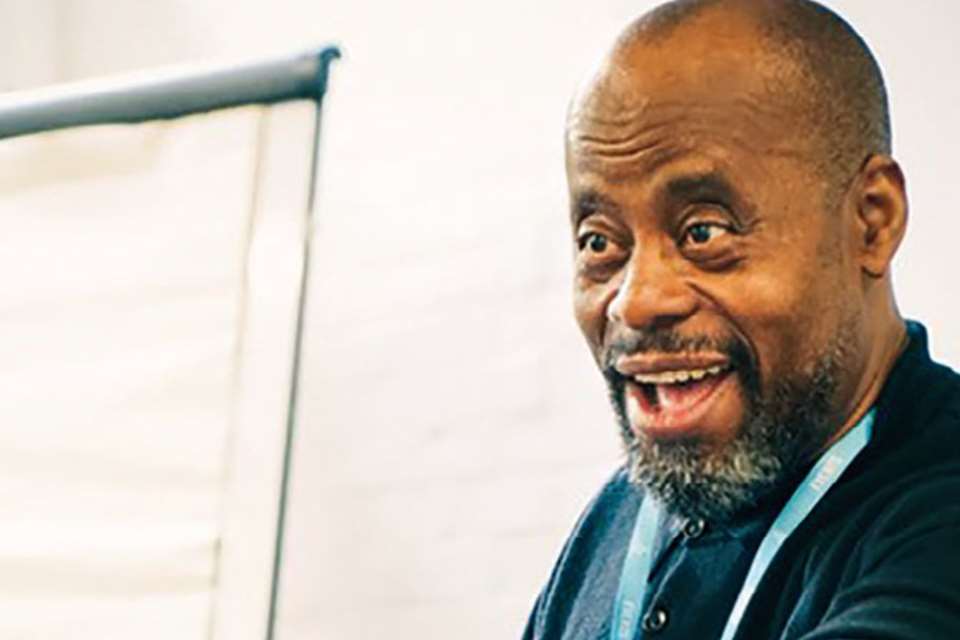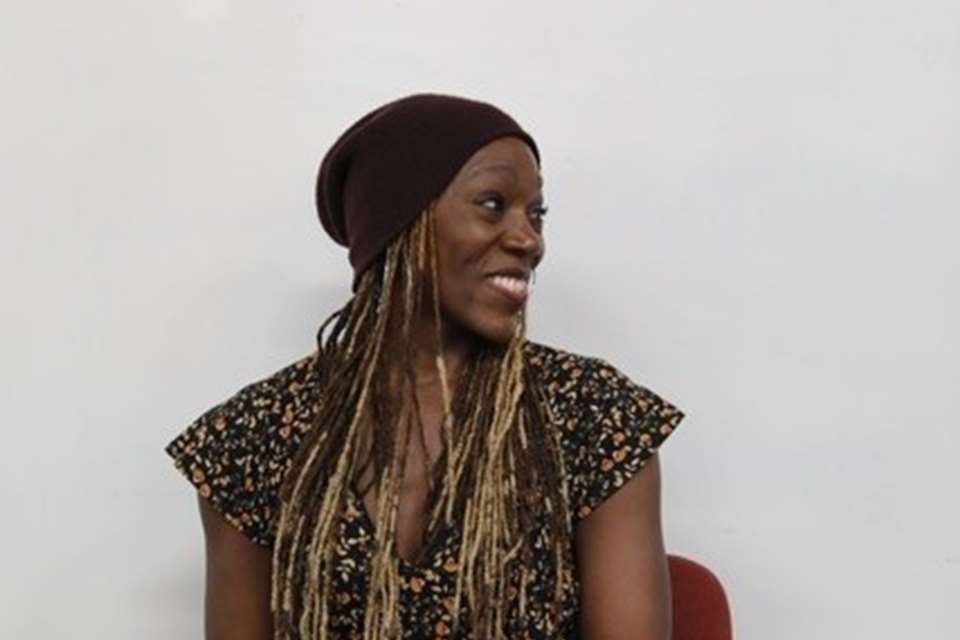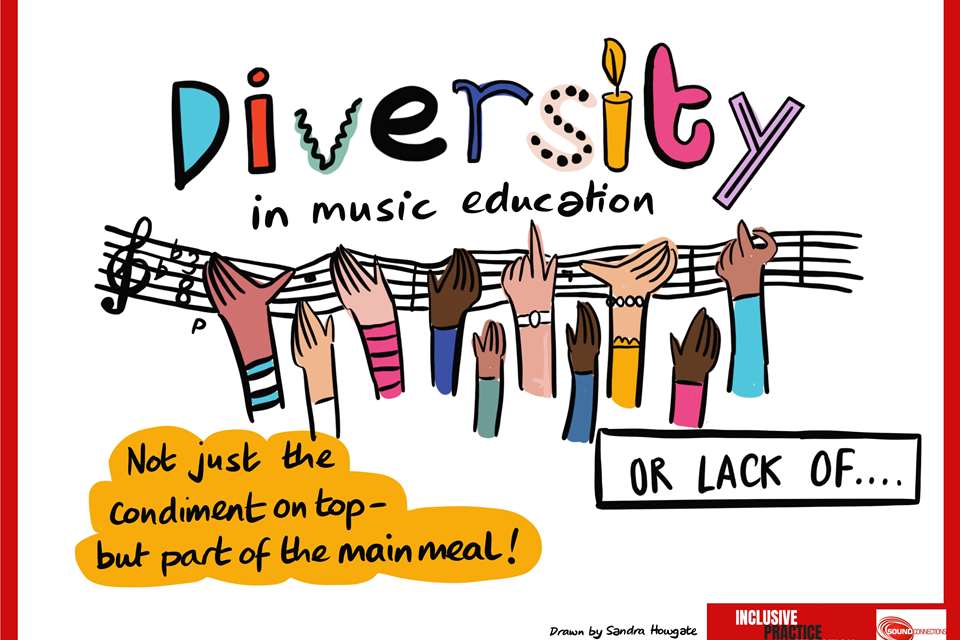Philip Flood interview: beyond 'youth voice' and 'challenging circumstances'
Harriet Richards
Thursday, September 1, 2022
What do we mean when we talk about ‘challenging circumstances’ and ‘youth voice’ in music education? Harriet Richards speaks to Sound Connections’ director Philip Flood about the meaning behind these oft-used phrases.
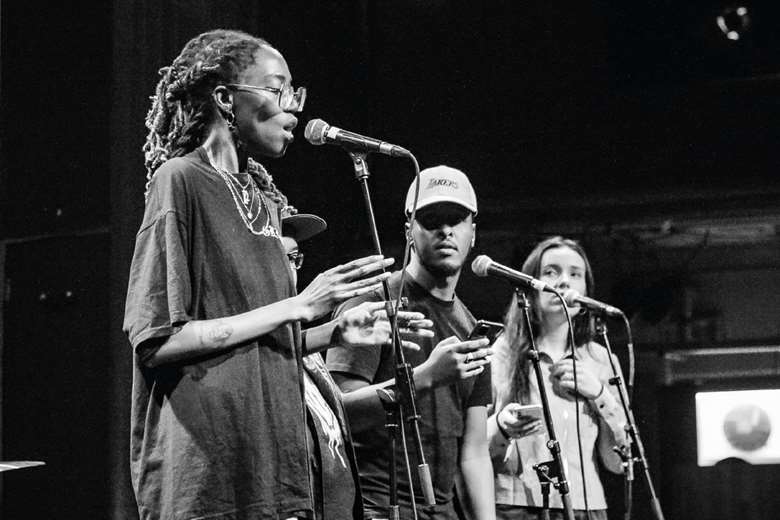
As the cost-of-living skyrockets, NHS mental health services receive record high numbers of referrals for children and young people, and more than 600,000 Ukrainian refugees – thousands of whom are children – attempt to make a life for themselves in the UK, it's a grim but unavoidable reality that many young people currently face significant barriers to accessing music education. The current crises aside, people have always faced challenges that reduce the accessibility of educational or cultural opportunities: learning difficulties, disabilities, mental illness, socioeconomic deprivation, crime, behavioural issues, displacement, homelessness – the list goes on.
Quite rightly, we often hear it insisted that every child and young person should be able to access high-quality music education – the vision of the new National Plan for Music Education is ‘to enable all children and young people to learn to sing, play an instrument and create music together, and have the opportunity to progress, including professionally’. In order to achieve the ‘all children’ part of this, the barriers must be removed. That doesn't mean waiting with bated breath for poverty and homelessness to be eradicated, or mental illnesses to be cured, but rather it means adapting, developing, and building upon our practices until the barriers become lower and lower, and are – in an ideal world – eventually imperceptible.
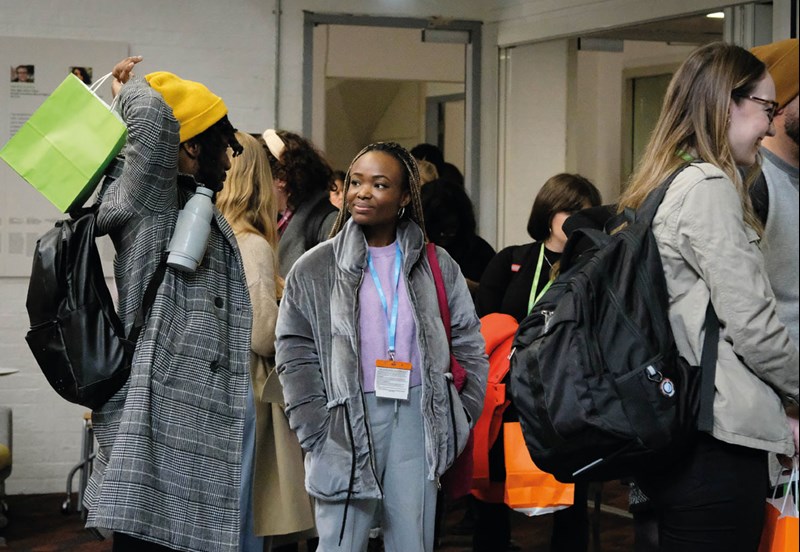
Sound Connections’ annual ‘Inclusive Practice In Action’ event at Amnesty International, 7 April 2022 © HATTIE DARLING
Scrutinising language
In music education, the barriers referred to above are sometimes described as ‘challenging circumstances’. On the Sound Connections website, the ‘what we do’ tab lists six areas of focus, including challenging circumstances; youth voice and participation; and sector and workforce development. But speaking to me now, the charity's director Philip Flood says, ‘Challenging circumstances is a phrase that was developed by Youth Music about 20 years ago, and I think we need to move away from that now and start to think about what the barriers are for young people. We're currently looking at how we can update our own language.’ He adds: ‘The use of language – especially at the moment within music education – is coming under a lot of scrutiny, which is a good thing. We are questioning our own terminology.’
Flood joined Sound Connections in 2010, having already spent around 10 years working to improve access opportunities in music education with LSO Discovery, Spitalfields Music, and an inner-London college. ‘It is us as society who put those barriers in front of anyone accessing opportunity, and therefore it is our responsibility to remove those barriers to let, in this instance, young people thrive,’ he continues. ‘I think talking about challenging circumstances is actually not helpful – it's old language and we need to embrace and develop a new language moving forward.’ As Flood acknowledges, many organisations are already reconsidering their use of language, particularly in relation to young people and protected characteristics. ‘It's happening more and more, but it's not happening quickly enough,’ he adds. As Creative United CEO Mary-Alice Stack wrote in a letter to the editor in MT's 2021 SEND focus issue, ‘Changing a language convention takes time.’
Systemic injustice
Although originally a London-based organisation (the soon-to-be-updated website still reflects this), Flood says that in recent years Sound Connections has ‘fully transitioned’ to being a ‘national strategic support organisation’, offering an innovative selection of training opportunities for music leaders in all contexts, as well as providing opportunities and funding for young people to pursue their unique interests. ‘We see ourselves as UK leaders in youth voice’, says Flood, as he explains the charity's key driving principles. Again reflecting on his own use of language, Flood clarifies: ‘We talk about “youth voice” – young people have voices; it's about how you can put them front and centre and give them opportunities to have their voices heard.’
One way through which Sound Connections has been practising this for the last 12 years is Wired4Music – the charity's youth network currently consisting of around 1,000 16- to 25-year-olds from across London. ‘We've probably got around 100 core members who are engaging on a regular basis,’ says Flood. They help plan Sound Connections events, help shape the business strategy, and can join the team as young trustees – four of the nine current trustees are under the age of 25.
With Flood at its helm, Sound Connections strives to ‘share power’ with young people in everything it does, particularly in its work to improve diversity and representation in music education. ‘We understand that there's a prevalence of systemic injustice and discrimination,’ Flood says, ‘so it's about asking how we can bring young people into that conversation’. In a similar vein, Sound Connections doesn't ‘do projects’, he adds. Instead, they talk to Wired4Music members about what they want to do, and the team then supports them to realise the idea – perhaps financially, but also through mentoring and other support.
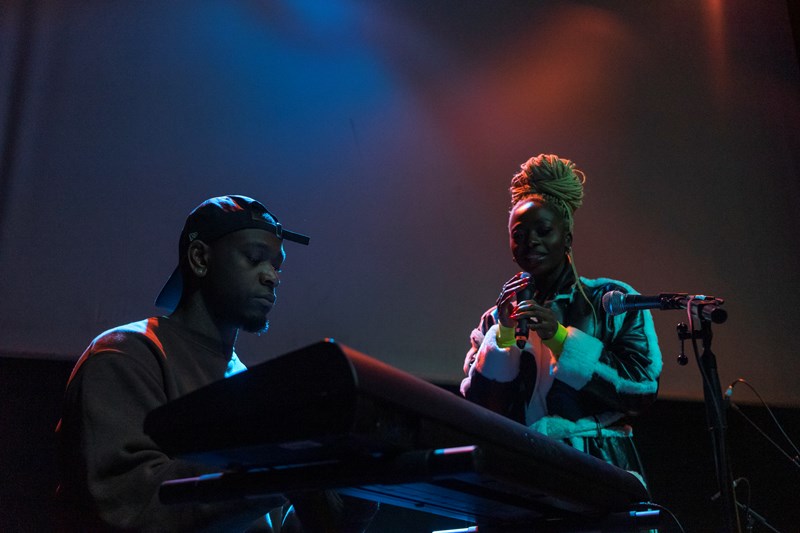
Wired4Music members participating in an artist residency at Rich Mix, March 2022 © Alex Clovis
Diversifying the cultural workforce
Celebrating Sound Connections’ 20th anniversary this year, the plan now, Flood tells me, is to dedicate 10 months to reflecting on the last two decades; acknowledging achievements, but also ‘telling stories’ and tracking the journeys of some of the young people who have come through Wired4Music. ‘I think that's really important in terms of how we help and support young people,’ says Flood. ‘They need to see role models – if you can't see it, you can't be it. And actually, they don't want to see somebody who is way down the road, with a recording contract or a major job at a record label, or who is a sound engineer in some fancy studio. They want to see people a few years ahead of them so that they can identify with them.’
He offers the example of a young songwriter and producer who joined Wired4Music in his early 20s. Having successfully developed an open mic night, he became a freelance producer for Sound Connections, working alongside other youth network members, before joining as a member of staff. He is now a relationships manager at Arts Council England and also produces events – most recently at the Horniman Museum, which was named Museum of the Year in July. Part of the winning bid was a music event he produced, says Flood, describing it as a ‘really broad urban music event’. ‘That's not an isolated story,’ he adds. ‘There are some people who are now quite big in the music industry, or they work for music education hubs, or the Tate, or the National Theatre. It's our way of looking at how we can begin to diversify the wider cultural workforce.’
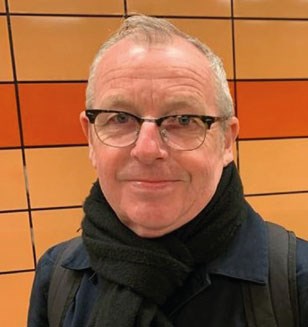
What do you need?
As well as empowering the future workforce, Sound Connections also supports the current music education workforce by providing training and networking opportunities. ‘We need to acknowledge that there is a lack of diversity in the workforce, and a lack of lived experience and different voices,’ says Flood, adding that one of their answers to this is to invite guest curators to programme their events (recently Brenda Rattray and Vanessa Stansall, for example). This is another way of ‘sharing power’, as the curators enable the organisation to offer training sessions that Flood himself would never even consider. ‘It's beyond my realm of understanding,’ he says frankly. ‘It's about asking ourselves, who needs to be in the room? By bringing as many diverse voices as possible into the room to inform what we do, we can then hopefully go out to the wider music and creative sectors to really innovate and evolve other organisations.’
Sound Connections’ training events tend to be free or highly subsidised; some examples of upcoming sessions include, ‘Orchestras for All – an approach to inclusive ensembles’ (19 October), ‘Exploring youth voice within music-making practices in classical music education’ (7 November), and a London Early Years Music Network event entitled ‘Neurodiversity affirming practice’ (29 November). ‘I'm always constantly impressed by those music leaders who reflect on their practice, who see professional development as really important for their development, who have an understanding of youth or participant voice in the wider sense, and who are open to a range of ways of making music,’ says Flood, when I ask for his thoughts on the current level of inclusive practice within music education.
Looking to the future, Flood hopes that Sound Connections can offer more needs-based training – another example of more evenly distributing power. The charity began offering small pots of money for professional development grants during the pandemic, and he now sees this as a ‘priority’. ‘It's not about “putting on” training – it's about saying, what do you need?’ explains Flood.
As with any organisation offering training, Flood is acutely aware that Sound Connections must practise what it preaches: ‘We realise that we have to change; we realise that there is systemic discrimination within our own organisation and we have to confront that. We can't go out and tell other people what to do through our training, or work with young people, until we've acknowledged that and owned that.’ Flood wants Sound Connections’ work to be ‘genuine and authentic’, and this continuous self-reflection is an important part of achieving that. It is encouraging that even those leading the way in inclusive practice in music education refuse to rest on their laurels.


